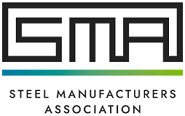Market Data

November 18, 2021
SMA: Are Scrap Export Restrictions the Next Topic for the U.S. and EU to Address?
By Philip Bell, President, Steel Manufacturers Association
Earlier this year, the European Commission began reviewing its Waste Shipment Regulation (WSR) and considering proposals for its revision. On Nov. 17, the EU commission announced that it may restrict waste exports including metal scrap to non-OECD countries.
![]()
In yesterday’s formal announcement, the commission proposed revised legislation on waste shipments, including steel and non-ferrous scrap. EU scrap metal exports to other countries will be allowable only if they can manage these sustainably and ensure that the facilities receiving their waste are subject to an independent audit showing they manage the waste in an environmentally sound manner.
On the surface, this sounds pretty straightforward and most would think this will not negatively impact the United States. Afterall, the U.S. is an OECD member and America is the world leader in electric arc furnace (EAF) steel production. Steel scrap is used mainly in EAFs, which emit less carbon than blast furnaces that use iron ore and coal as their primary raw materials. This has made steel produced in America the lowest carbon intensity steel in the world. However, we should brace ourselves for potential unintended consequences as this legislative review process moves forward.
At SMA, we are concerned by reports that the EU may be considering imposing restrictions on the export of recycled ferrous metals. First, the mere fact that the EU continues to classify ferrous scrap as waste material as opposed to a co-product of steelmaking is troubling. Scrap is extremely valuable and it is a raw material that is essential to a low carbon future for steelmakers. Recycled ferrous metals are infinitely recyclable and a critical component of the circular economy. Around the globe, it is widely acknowledged that recycled metals are not wastes but essential raw materials used in manufacturing and steelmaking. This year both Spain and Germany have announced government subsidies to help high-carbon-emitting blast furnace operations convert to more sustainable and scrap-utilizing EAF production.
The use of recycled ferrous metals reduces millions of tons of carbon dioxide emissions each year. Restrictions on the export of recycled ferrous metal, classified as waste under European legislation but not under U.S. law, will not address underlying causes of environmental harm while at the same time restricting supplies and distorting markets.
We are also concerned that this could result in stricter regulation, meddlesome monitoring and unneeded enforcement rules on scrap exports to OECD countries such as the U.S.
As the EU and U.S. celebrate their recent agreement on an alternative scheme to Section 232 tariffs, it is my hope that we can work together as the EU redefines its policy on scrap exports. During the S232 negotiations process the two allies showed they can have solution-focused, market-based discussions that encourage fairness and free trade. There is no reason we cannot do the same when it comes to the recycling and export of ferrous scrap.
Phil Bell is president of the Steel Manufacturers Association (SMA). SMA is the largest steel industry trade association in the United States and is the primary trade association representing American EAF steel producers. Accounting for over 70% of domestic steelmaking production, EAF producers are the most sustainable steelmakers in the world. By using an innovative, 21st century production process that is less energy-intensive, domestic steelmakers have up to 75% lower carbon emissions than traditional steelmakers. SMA’s 24 producer members have operations in 35 states. For more information check out our website at www.steelnet.org or our Facebook page.






